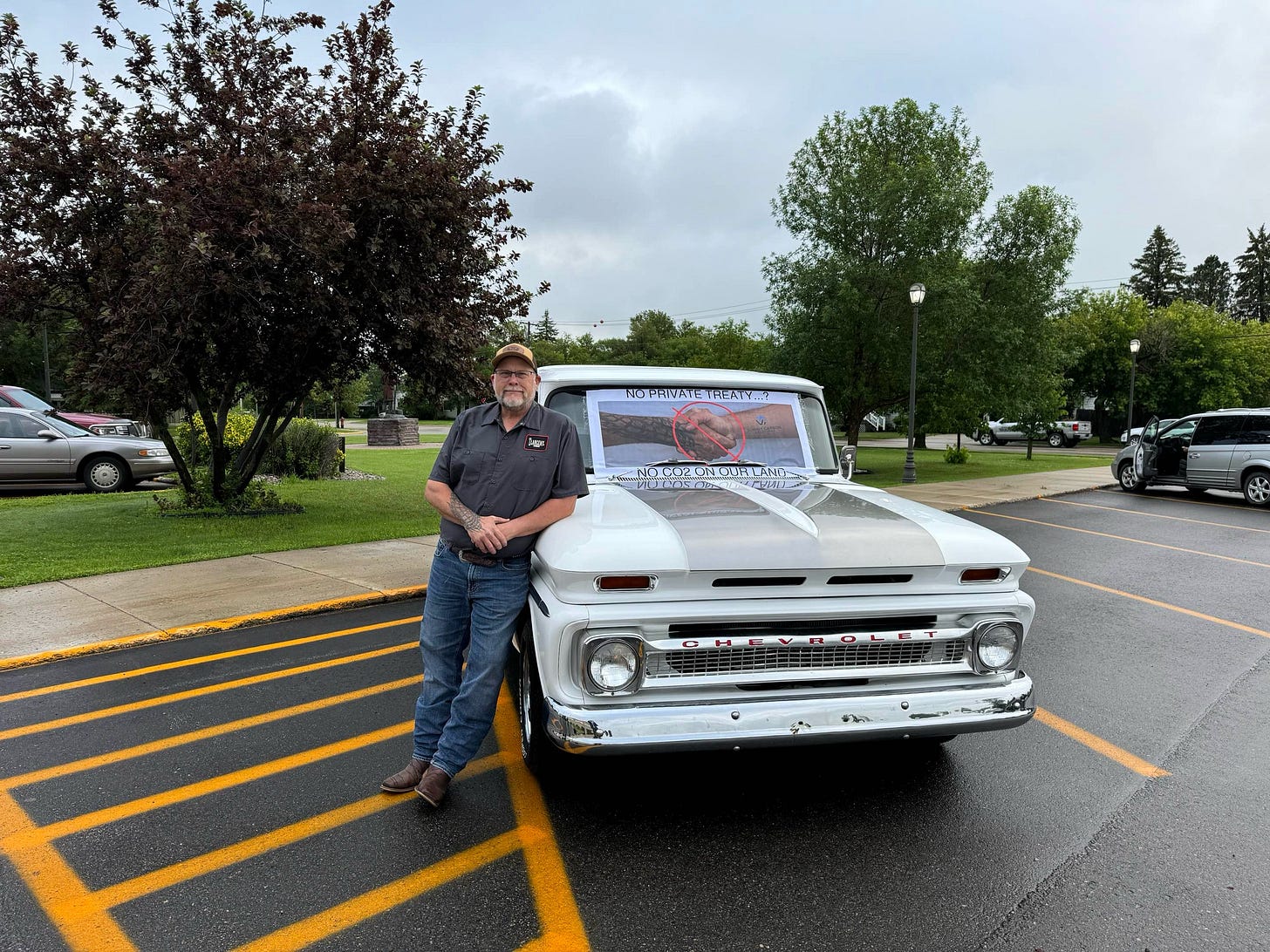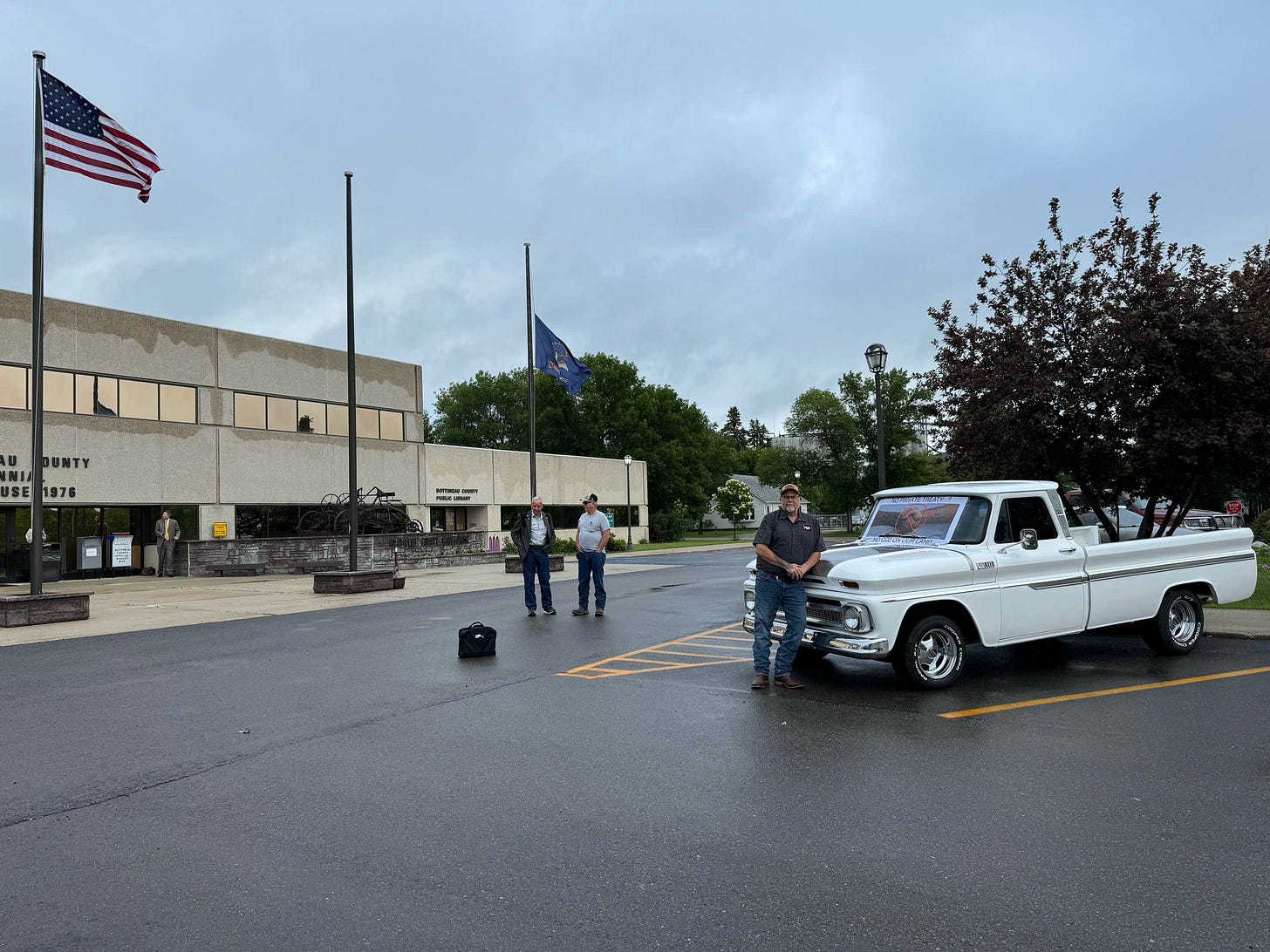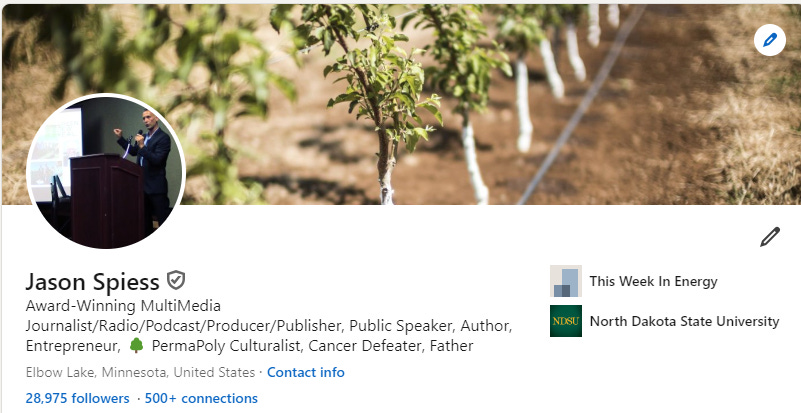
The constitutionality of North Dakota’s pore space laws, subject to a lawsuit by the Northwest Landowners Association, is now in the hands of the court after oral arguments Friday.
Northeast Judicial District Judge Anthony Swain Benson canceled the trial scheduled for September and confirmed he will declare summary judgment in the case.
“There’s not going to be a trial,” Benson announced to a Bottineau courtroom filled with attorneys representing landowners, the state and energy companies. “There’s no factual issues.”
He expects whomever he rules against, whether the landowners or the state, to appeal his decision to the North Dakota Supreme Court.
“I won’t be the final say here,” Benson said.
The crux of the lawsuit is the state’s laws regulating the use of pore space for underground storage — of carbon dioxide or otherwise — are unconstitutional, according to the landowners. These laws, passed in 2009 for carbon dioxide and in 2021 for oil and gas storage, empower the North Dakota Industrial Commission to “amalgamate” pore space of nonconsenting landowners into a storage facility as part of the permitting process and guarantee they will be “equitably compensated” for the use of their pore space.
The association and the North Dakota Farm Bureau, an intervening plaintiff in the case, believe the state constitution guarantees landowners “just compensation,” as determined by a jury trial, if their private property is taken or damaged by the state. The proper method for companies to obtain pore space to use for underground storage, they argue, is to go through the eminent domain process.
“They don’t want to pay for the property they’re using,” said Derrick Braaten, attorney for the association. “They don’t get around paying and that’s what this is really about.”
Attorneys for North Dakota and the energy companies asserted statutes are presumed to be constitutional until proven otherwise beyond a reasonable doubt, arguing the plaintiffs had failed to meet that burden.
“Their claims are doomed as a matter of law and should be dismissed,” said Zachary Pelham, attorney for the state of North Dakota.
Summit Carbon Solutions is among the companies that have intervened in the case, which could have implications for the company’s CO2 storage project proposed for North Dakota.
Correlative rights
The North Dakota Industrial Commission was empowered to amalgamate pore space and determine what equitable compensation is, Pelham said, because the use of pore space is similar in many respects to the forced pooling and unitization of crude oil reserves in the Bakken.
Both resources, Pelham asserted, are found in shared reservoirs underground which extend across property lines on the surface. The correlative rights legal doctrine, a body of law and precedent surrounding the rights to shared reservoirs of resources, allows for the forced pooling and unitization of oil to ensure all mineral owners are able to exploit their share of the resource and are compensated for it.
The same principle should apply to pore space, Pelham said. The correlative rights doctrine allows a shared resource to be developed and exploited, even over the objection of a minority owner who would otherwise have a “heckler’s veto” over its use.
“The rights of the majority also matters,” Pelham said. “That’s what this statute does. It balances those rights.”
Braaten forcefully disagreed with the decision to apply decades of legal precedent developed for oil and gas, “one of the most complex bodies of law there is,” to the use of pore space.
“There’s a lot more to it than ‘they’re similar,’” Braaten said.
He warned of unintended consequences if correlative rights are fully applied to pore space reservoirs, such as unleased landowners being entitled to a far greater “proportionate share” of the revenues — and the development costs.
Pelham on the other hand said the entire correlative rights doctrine is part of common law, the use of legal precedents to inform future decisions, which “evolves” over time in reaction to new technologies and situations.
“North Dakota is at the tip of the spear on this issue,” Pelham said. “We really are in new territory.”
Eminent domain
The association believes delegating these powers to the North Dakota Industrial Commission is not only unconstitutional, but also unnecessary, because there already is a method by which private land can be acquired for public use – eminent domain.
“If it’s going to happen, there’s a process,” Braaten said. “It’s the only one the constitution allows.”
This would revoke the North Dakota Industrial Commission’s authority to amalgamate pore space on its own, forcing storage operators to go to the courts and use eminent domain to secure rights to pore space of nonconsenting landowners.
“We have a right to a jury trial to determine just compensation,” Braaten said.
That doesn’t mean the landowners the association represents will like the process. Landowners, by and large, dislike it when the government seizes or uses their property without consent.
“They don’t like eminent domain,” Braaten said. “It’s a dirty word to them.”
But it’s a known process, enshrined in the constitution and in law, with safeguards to guarantee landowners are treated fairly. Braaten doesn’t have faith in the North Dakota Industrial Commission’s ability to do the same.
‘Good cause’ waiver
The plaintiffs also are challenging a provision in the law allowing the North Dakota Industrial Commission to waive any of the requirements for a permit for “good cause.”
That’s concerning, according to Andrew Cook, an attorney representing the North Dakota Farm Bureau, because they would be able to legally use that provision to waive the requirement nonconsenting landowners be compensated for use of their pore space.
“That’s problematic,” Cook said. “That exception statute still poses a problem.”
Pelham said that’s not the intent behind that provision, which was included so the North Dakota Industrial Commission could adapt to new requirements or administrative rules issued by the Environmental Protection Agency.
“This isn’t carte blanche,” Pelham said. “This isn’t the North Dakota Industrial Commission can do whatever it wants.”

Threshold claims
The bulk of the arguments against the association’s lawsuit rested on complex legal arguments asserting the plaintiffs do not have the right to bring the lawsuit at this time.
In the case of the carbon dioxide storage law passed in 2009, the defendants argue the statute of limitations has expired to challenge the law.
“They sat on their hands for 15 years,” said Josh Swanson, attorney representing Minnkota Power.
Braaten and Cook rejected the idea there could be a statute of limitations, which Pelham asserts is six years in this case, on whether a law is constitutional or not.
“That is, quite frankly, crazy,” Braaten said of the idea an unconstitutional law could be stuck on the books because a plaintiff missed a window in which to file a legal challenge against it.
In regards to the 2021 law regulating the use of pore space to store oil and natural gas, the state argues the law can only be challenged by a landowner affected by the amalgamation provision. Since the North Dakota Industrial Commission hasn’t amalgamated any pore space under that statute, it can’t be challenged as unconstitutional because nobody has the legal standing to do so.
“The challenge is not appropriate at this point,” Pelham said.
Braaten disagreed. It’s appropriate to challenge the amalgamation provision, he argued, because there is no conceivable scenario where the North Dakota Industrial Commission could use its amalgamation power in a constitutional manner, which means the provision was unconstitutional upon the law’s enactment and not only at the time of its use.
Article by Jacob Orledge. Orledge is a Delaware native, has spent half a decade reporting on Williams County and the Bakken for the Tioga Tribune. While working in Tioga, Orledge won more than a dozen state and national first-place awards for his reporting and photography.
Story was originally published by the North Dakota Monitor. ESG University republishes select stories under a shared content agreement and Creative Commons license CC BY-NC-ND 4.0.
Everyday your story is being told by someone. Who is telling your story? Who are you telling your story to?
Email your sustainable story ideas, professional press releases or podcast guest submissions to thecontentcreationstudios(AT)gmail(DOT)com.
The Carbon Conversation
The Carbon Conversation is dedicated to advancing the complex carbon conversation regarding emissions, capture, transportation, storage and grid impact.
The Carbon Conversation brings sustainable stakeholders and energy enthusiasts together that wish to capture CO2 emissions safely and transport the CO2 via pipelines, and other safeways, allowing the captured CO2 to be permanently stored in deep underground formations.
The Carbon Conversation encourages productive discussions and diverse dialogue - both pro and con - everyone’s voice will be heard in order to find a positive path forward for all parties concerned.
Click here for The Carbon Conversation
Interview by Jason Spiess. Spiess has over 39 years of media experience from being the host to the publisher to an editor to the executive producer to having principal ownership in several media companies.
Spiess is currently the host of several newsmagazine programs and podcasts that carry a radio network that spans five states and two countries, as well as worldwide through iHeart and other podcast platforms, as well as a professional social media audience of over 400K followers.
In addition to his newsradio programs and industry podcasts, Spiess is a regular contributor to many industry publications, newspapers and news websites.
Spiess is a full-time father, cancer survivor, environmentalist, author and graduate of North Dakota State University. Spiess also operates an off-the-grid office integrating sustainable solutions, including the best practices with an Industrial Forest and Digital Diversity.
















Share this post